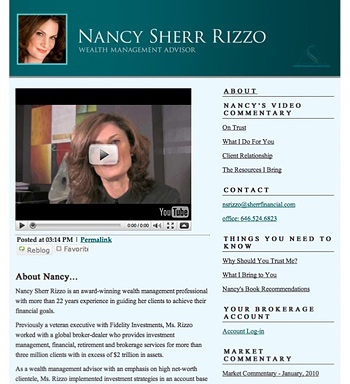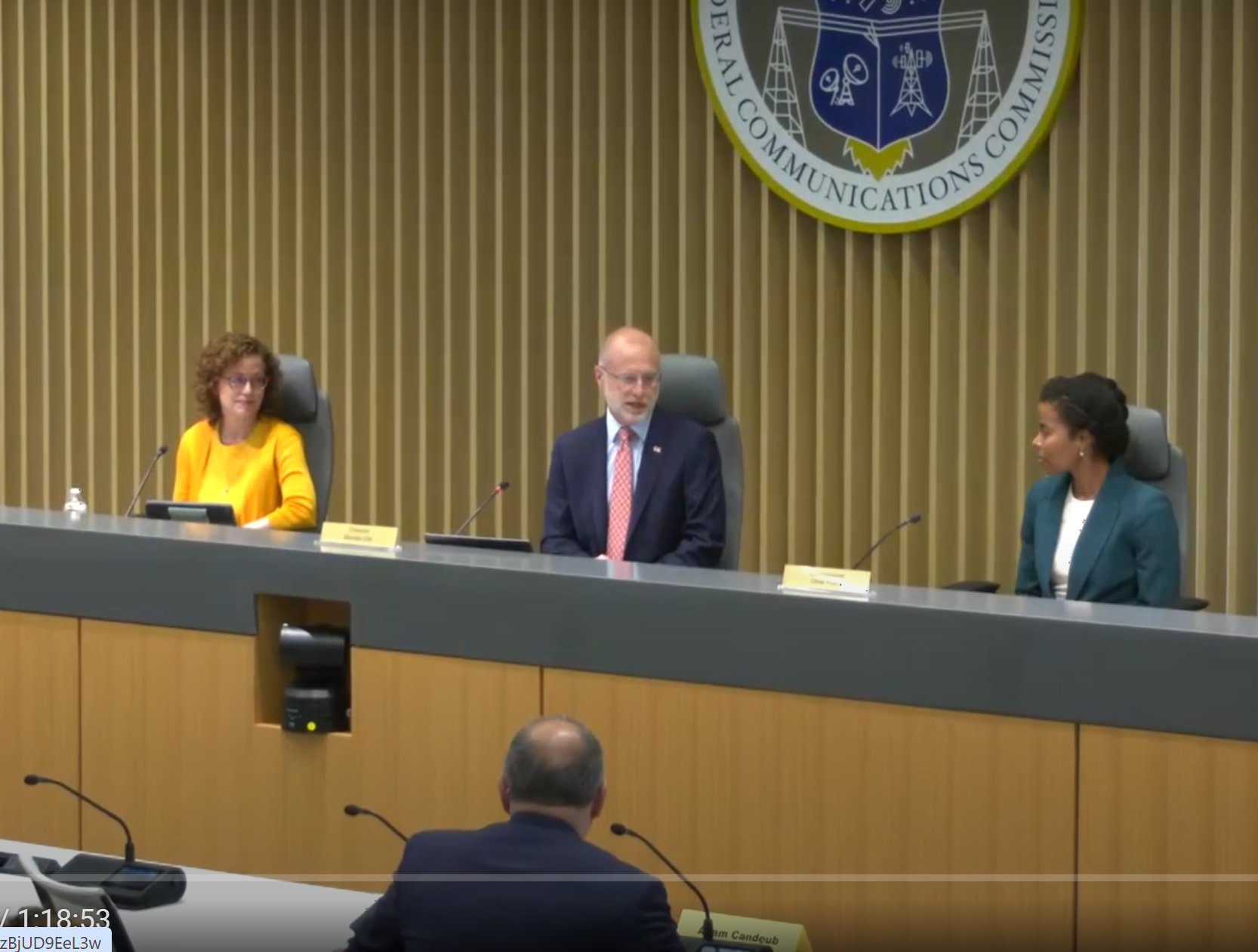The 'Next Big Thing' for Videographers

From the comments I've received about recent columns in this publication, there are many people with professional video skills who are out of work and looking for new opportunities. If you're one of them, read on because this article may be helpful to you.
It's no secret. Solid, paying jobs in journalism (television or otherwise) are disappearing fast. So are jobs in video production, engineering and other facets of what was once termed "the television industry."
I say this because most of the best known media companies are downsizing fast and there's little financial future at most of them. Even if you get a job, the pay is much less than in an earlier era. The situation in the traditional TV industry, to put it lightly, is not very promising.
THE GOLDEN TOUCH
So how do you take your video skill set and turn it into money? First, look at small format video. The gear is now cheap and very portable. The use of video is growing faster than ever and is poised to explode even more in coming years. Professional skill sets remain essential. It's just the jobs that have changed.
Video technology has now moved ahead of human understanding as to its potential as a communications tool. A lot of education is needed. But within this realm is a huge opportunity for video professionals who are comfortable starting their own businesses and being their own boss.
My last column was about video migrating to the Internet. This is happening in multiple ways. Social media is one of the most important. With platforms like YouTube, anyone can now have a free global platform for distribution of video.
This blog, designed by Frank Beacham for wealth management consultant Nancy S. Rizzo, utilizes five videos, all served up by YouTube. The YouTube platform also offers the tools to move that video to any other Web site or blog. This is significant. Nowhere in human history, has such a powerful communications medium ever been available to the masses for free.
While most YouTube video is now frivolous stuff made very cheaply, the platform is ripe for professionally made content. Savvy Web site operators are turning their Internet offerings into multimedia "TV stations" with video tied together by actors or spokespersons. The era of the Internet TV station is upon us.
USING THE WEB WISELY
A business today must be Internet savvy—spreading its brand identity across the Web in multiple ways. To be effective, the business must be able to succinctly describe the uniqueness of its product and determine the targeted audience for it.
YouTube, when used as a server for video tied to a blog, can be distributed to social media platforms like Facebook, LinkedIn and Twitter. This is a powerful com-bination to tell a company's story to a global audience.
Online videos can be straight video or narrated slideshows (check out Boinx Fotomagico, an excellent application, at www.boinx.com). Key starting areas for video are product introductions and training videos. Companies should also frequently circulate photographs of new products. (You'd be amazed at the businesses that still don't take any pictures of their products.)
With the help of a multimedia professional, businesses must design a specific narrative and marketing plan tailored to its individual attributes. That's where you, the video expert, come in. Traditional public relations and marketing firms tend to be clueless about multimedia. Most simply write press releases and call media outlets. That era is coming to an end.
Multimedia is clearly "the next big thing." Combining the written word with audio, video, and still photography can produce compelling stories that speak to their chosen audience. If such multimedia marketing is done effectively, results will be achieved in a matter of months.
The money to convert static Web pages into video Web sites can easily be taken from the extravagant sums now spent on trade shows. It doesn't make any sense to have a 24/7 global television presence on the Web over a single trade show where a limited audience is reached. So rather than ask a business to pay additional money for Internet media, ask them to move the funds from less effective media uses.
THE POWER OF INTERNET TV
I am doing Internet television now and having initial success with it. When the bottom fell out of traditional media industries last year, I analyzed my skills. Over the years, I have been a professional writer, videographer, photographer and audio recordist. Having these skills is exactly what's needed to do web video.
It has been a challenge competing with kids with a point and shoot video camera charging $50 for a YouTube video. The best way to overcome this is to do some demo sites. If necessary, produce them at a lower than normal cost to get started.
Then make the demo site truly professional. Write excellent copy. Light your videos to perfection. Make the sound sparkle. And always post new blog items with photographs, even if you take them yourself. If you create work of exceptional quality, clients will notice.
I work with musicians, photographers and a range of other businesses. I ask every client to identify what they want from the Internet audience. That normally means creating key words that describe what they do and offer. Then they get it down to 15 words or less for the Internet audience. (It's harder than you may think!)
I put the client in a position to be discovered by the online audience that it desires. It's sometimes difficult to change a company's culture, but businesses must be accessible and have a direct online conversation with potential customers in online communities of interest. They must use social media effectively.
Blogs under one's own domain are better than Web sites because they can be updated often and easily, creating "stickiness" with people. You want the audience to keep coming back. Then open Facebook, LinkedIn and Twitter accounts and tie them together. Use videos served by YouTube to open the blog and produce a podcast to tell the story. Whenever an update is made, all the sites automatically reflect it.
You'll be amazed at how many people subscribe to Twitter feeds of substance. Create high-quality pages on Facebook for your business and solicit "fans." Never bombard people with junk e-mail, always have them ask for your material. It's far more effective.
The idea is to leave traces of your clients all over the Internet by connecting with like-minded people in online communities of interest. I am convinced the video version of this is the hot new field of the future. If you don't have all the necessary multimedia skills, team up with others. Work only with top quality people and check out their skills in advance (you'd be surprised at the number of wannabes out there).
It's a bright future for video professionals with something to say. Just the jobs have changed. The skill set that you acquired over the years can serve you well. The comfort of a paying job may have disappeared, but working for yourself can bring new freedom and be a much needed breath of fresh air.
Frank Beacham is an independent writer-producer based in New York City. Visit his Web site atwww.frankbeacham.com.

The professional video industry's #1 source for news, trends and product and tech information. Sign up below.
Frank Beacham is an independent writer based in New York.

